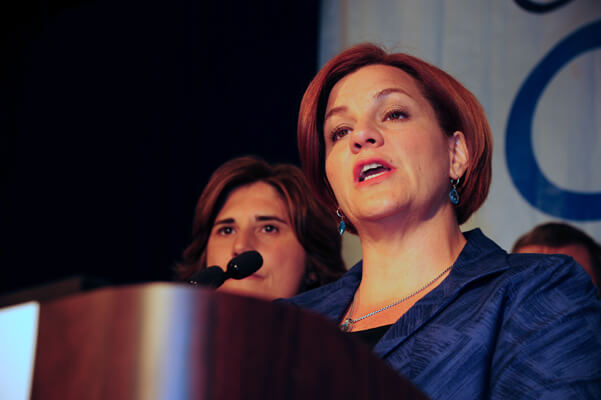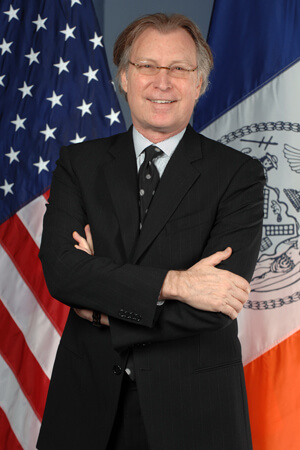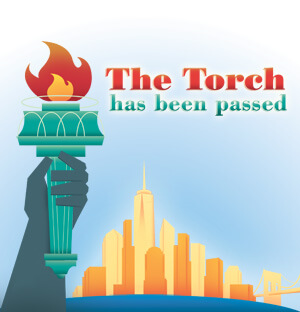Councilwoman Margaret Chin at the Independence Plaza North Senior Center in Tribeca. | OFFICE OF COUNCILWOMAN MARGARET CHIN
BY SAM SPOKONY | Having served on the City Council’s Committee on Aging during her first term, Councilwoman Margaret Chin was more than happy to take over the committee when starting her second term in January.
“And I think the senior advocates were happy, too,” she said, smiling, during a recent interview in her Council office at 250 Broadway.
Chin, 60, represents the First Council District, which covers Lower Manhattan north to Greenwich Village. As Aging Committee chair, she hopes to bring attention and resources to the fast-growing senior population. According to a February report by the Council of Senior Centers and Services of NYC, by 2030, those aged 60 and older are projected to reach 1.84 million people — or around 20 percent of the city’s total population.
City Councilwoman Margaret Chin aims to curb elder abuse, broaden housing opportunities
“On any issue that we talk about, whether it’s housing, transportation, health, or anything else, seniors need to be at the table,” said Chin. “The effect on seniors has to be heard.”
And she’s hit the ground running, already introducing new legislation and resolutions aimed at protecting elderly tenants from bullying landlords and curbing elder abuse.
Chin’s new bill, introduced on March 12, would double the maximum fine for tenant harassment — refusing to make necessary repairs or accept rent payment, shutting off services like heat and hot water, or threatening force — by increasing the penalties from the current range of $1,000 to $5,000 up to $5,000 to $10,000 per dwelling unit.
The legislation would also create a “blacklist” for offending landlords, by requiring the city’s Department of Housing Preservation and Development to post information about the violations — including the building address and owner’s name — whenever properties are found to breach city laws against tenant harassment.
“We want to send a strong message that these practices are unacceptable,” said Chin. “We want to protect the residents who helped build up these communities, because they’re the pioneers, the ones who were there 30 or 40 years ago when the market wasn’t that great in certain areas. They’re the ones who invested the time and energy to build up those neighborhoods.”
Chin’s two new Council resolutions, which she also introduced on March 12, would call on the State Legislature to pass laws aimed at stopping financial exploitation and physical abuse of seniors. One focuses on a bill already introduced in the State Assembly and Senate that would allow banks to refuse payment from an account when there is reason to believe the account holder is being exploited through a scam, forgery, or identity theft. Financial abuse against seniors can be difficult to investigate, Chin stressed, since victims are often unaware of the exploitation, reluctant to come forward, or incapable of giving proper consent to those controlling their finances. In addition, 64 percent of reported perpetrators of financial exploitation of a senior are actually family members, spouses, or significant others, according to a 2013 study by the New York State Bureau of Adult Services.
Her other new resolution calls on the State Legislature to require certain professionals to report suspected elder abuse — physical, psychological, sexual, or financial — to authorities. Those falling under that mandate, according to Chin, should include healthcare and social service workers, law enforcement officials including investigators at district attorneys’ offices, attorneys, and financial professionals.
New York is one of only four states in the nation that do not have such a mandatory reporting law when it comes to suspected elder abuse. According to a 2011 report by the New York State Office of Children and Family Services, 120,000 seniors in New York City have experienced abuse — but only one out of every 25 cases was officially reported.
With work on the city’s fiscal year 2015 budget well underway — the final Council vote on the budget will take place in June — Chin is also pushing for increased funding for the city’s Department for the Aging (DFTA), which is recovering from heavy budget cuts that took place under ex-Mayor Michael Bloomberg’s administration. Bloomberg had reduced DFTA’s budget by $57 million — a whopping 20 percent of its previous total — over the past seven years.
Mayor Bill de Blasio drew cheers from Chin and senior advocates in February, when he pledged to provide $20 million in baseline funding to DFTA as part of his preliminary budget proposal for FY 2015. Many of those advocates were also pleased that, before appointing Donna Corrado his new DFTA commissioner, de Blasio named the department’s previous commissioner, Lilliam Barrios-Paoli, to be his deputy mayor for health and human services. Barrios-Paoli has been critical of Bloomberg’s cuts, and Chin said she believes that having an ex-DFTA boss so close to the mayor will help bring senior-related issues to the forefront.
Chin is particularly interested in winning additional funding for DFTA’s case management program, which provides direct support to homebound seniors. Currently, each social worker within that program carries a caseload of around 80 seniors, according to the city.
“That’s really a large number, when it comes to effectively doing one-on-one assessments and periodically checking in on the seniors,” said Chin.
An additional $3.5 to 5 million for the case management program would, she said, cut the social workers’ caseload down to around 60 or 65 seniors each.
Another key concern for Chin is increasing funding for education and counseling aimed at preventing elder abuse. The Council has historically set aside around $800,000 each year for that purpose, Chin noted.
“But is that enough money to get that program going as effectively as we want it to? No,” she said.
Chin said she is eager to learn how much of a focus de Blasio will put on senior housing needs when he details his closely guarded plan to build or preserve 200,000 units citywide, which he will unveil on May 1.
The Council of Senior Centers and Services of NYC (CSCS), a major advocacy group, recently put forth a suggestion for what half of those units could look like. In February, it called on the mayor to develop or preserve 100,000 units of affordable housing specifically targeted for seniors, a significant portion of which could be preserved by reforming the state’s Senior Citizen Rent Increase Exemption (SCRIE) program, which prevents seniors in rent-stabilized apartments from having to pay periodic increases in their rent. In the state budget just announced, the eligibility limit for SCRIE was raised from $29,000 in annual income to $50,000.
Chin said she is a strong supporter of strengthening the SCRIE program.
And SCSC, in turn, offered a strong seal of approval to Chin in her new post.
“Having been around for the past 25 years, I think Margaret’s going to be a great chair,” said Bobbie Sackman, the CSCS director of public policy. “I feel like she has good energy and is very committed to help seniors take on issues like housing and DFTA funding.”
CHELSEA SENIORS URGED TO ATTEND APRIL 21 QUALITY OF LIFE FORUM An April 21 forum on quality of life will allow Chelsea residents to hear from community leaders and elected officials and discuss neighborhood issues of burning concern.
The forum is hosted by the Senior Advisory Council of the Hudson Guild, a social services organization that has been helping Chelsea residents for more than 100 years, and the Neighborhood Advisory Committee.
Seniors, in particular, are encouraged to attend and share their concerns about Chelsea’s transforming landscape and their thoughts on what the de Blasio administration should focus on for the future.
Topics of discussion will include health, housing, safety, traffic, transportation, biking, and noise. A panel of officials including Manhattan Borough President Gale Brewer, State Senator Brad Hoylman, Assemblyman Richard Gottfried, and City Councilman Corey Johnson will open the forum with introductory comments on quality of life, after which they will open up discussion to attendees.
“New York City changes every day,” Johnson said. “Those changes can affect your quality of life and it is important to know what services are available to you. The Neighborhood Advisory Committee and Hudson Guild are excellent community resources and I thank them for helping to make sure New Yorkers can make well informed decisions about their lives.”
The forum will take place in Hudson Guild’s Elliott Center, located at 441 West 26th Street, between Ninth and Tenth Avenues, at 7 p.m. on April 21.


































